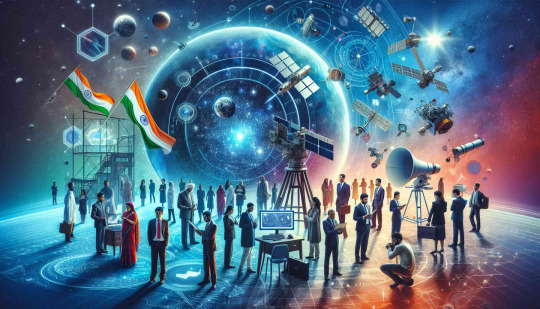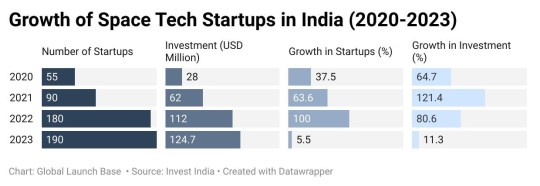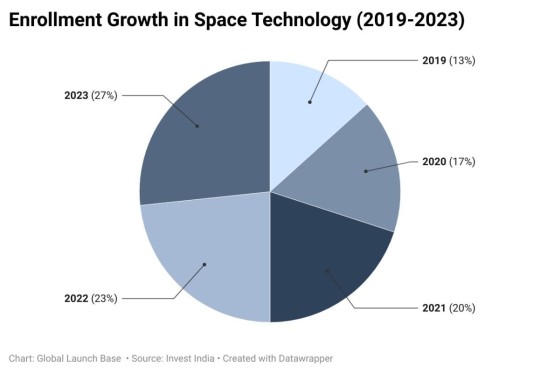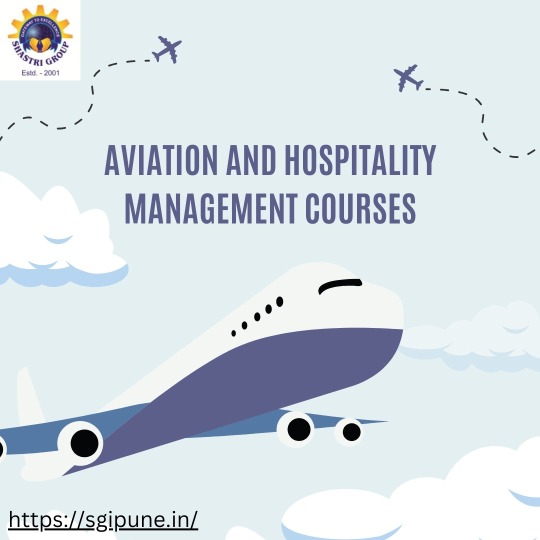#aerospace engineering in india
Explore tagged Tumblr posts
Text
Aerospace Engineering Colleges in Pune, Maharashtra, India
#Aerospace Engineering Colleges#Aerospace Engineering Course#Aerospace engineering#aerospace engineering universities#Aerospace engineering institute#Aerospace Engineering Colleges in Pune#Aerospace Engineering Course in Pune#Aerospace engineering in Pune#aerospace engineering universities in Pune#Aerospace engineering institute in Pune#Aerospace Engineering Colleges in Maharashtra#Aerospace Engineering Course in Maharashtra#Aerospace engineering in Maharashtra#aerospace engineering universities in Maharashtra#Aerospace engineering institute in Maharashtra#Aerospace Engineering Colleges in India#Aerospace Engineering Course in India#Aerospace engineering in India#aerospace engineering universities in India#Aerospace engineering institute in India#https://shashibedu.com/aerospace-engineering.php
0 notes
Text
#Aerospace Engineering Colleges#Aerospace Engineering Course#Aerospace engineering#aerospace engineering universities#Aerospace engineering institute#Aerospace Engineering Colleges in Pune#Aerospace Engineering Course in Pune#Aerospace engineering in Pune#aerospace engineering universities in Pune#Aerospace engineering institute in Pune#Aerospace Engineering Colleges in Maharashtra#Aerospace Engineering Course in Maharashtra#Aerospace engineering in Maharashtra#aerospace engineering universities in Maharashtra#Aerospace engineering institute in Maharashtra#Aerospace Engineering Colleges in India#Aerospace Engineering Course in India#Aerospace engineering in India#aerospace engineering universities in India#Aerospace engineering institute in India#http://www.shashibedu.com/aerospace-engineering
0 notes
Text
The Evolution of Chat-Based AI: Navigating the Post-ChatGPT Era | engineering colleges in bangalore | RRCE
In the not-so-distant past, the emergence of ChatGPT, a groundbreaking AI-powered conversational agent developed by Open AI, caused ripples of excitement across industries and communities worldwide. Its ability to generate coherent, contextually relevant responses mimicking human conversation captivated users and sparked a wave of innovation in chat-based AI applications.
#Mysore road Engineering Colleges#Engineering Colleges in mysore road#mysore road engineering college#good engineering colleges in bangalore#NAAC Accredited Colleges in Bangalore#Placement Engineering Colleges in Bangalore#Alumni Network engineering college#engineering colleges in bangalore#engineering college in bangalore#m tech colleges in bangalore#b tech colleges in bangalore#aeronautical engineering colleges in india#top 10 engineering colleges in karnataka#bangalore top engineering colleges#aerospace engineering colleges in bangalore#top aeronautical engineering colleges in india#best engineering colleges in bangalore#bangalore engineering colleges#top engineering college in bangalore#best engineering college in bangalore#private engineering colleges in bangalore#aeronautical engineering colleges in bangalore#biomedical engineering colleges in bangalore#biomedical engineering colleges#biomedical engineering colleges in karnataka#aeronautical engineering colleges in karnataka#top engineering colleges in bangalore vtu affiliated#best engineering colleges in bangalore for placements#NAAC A grade engineering colleges in bangalore#engineering colleges in bangalore after diploma
0 notes
Text
GE Aerospace's LM2500 Will Power India's Next Generation Missile Vessels
GE Aerospace's LM2500 Will Power India's Next Generation Missile Vessels
GE Aerospace’s LM2500 for Indian Navy’s missile vessels: Evendale, OH – GE Aerospace’s LM2500 marine gas turbine engine has been selected to power the Indian Navy’s Next Generation Missile Vessels (NGMV), built by Cochin Shipyard Limited in Kochi, India. This selection marks a significant milestone in India’s naval modernization efforts and further reinforces the LM2500’s reputation as the…
0 notes
Text
let’s talk about where you can nurture and develop these skills. Delhi, being a hub for education, has some top-notch institutions for aerospace engineering. But among the top 10 aerospace engineering colleges in India, one institution that shines as the No.1 private university is Amity University Noida.
#aerospace engineering colleges in delhi#best aerospace colleges in delhi#best aerospace colleges in india#aerospace engineering colleges in india
0 notes
Text

Defense Manufacturing in India | TATA Advanced Systems | TGP India
Explore TATA Advanced Systems' cutting-edge defense manufacturing solutions at TGP India. Specializing in aerospace, land systems, and advanced engineering, we deliver world-class defense products tailored to India's strategic needs.
0 notes
Text

A Study of the Dynamics of Bachelor of Science Aircraft Maintenance Engineering
For those students who want to achieve new growth in their careers as professionals in the rapid aviation industry, where precision and safety are important, and then a BSc in Aircraft Maintenance Engineering is an excellent choice for career development. This article explores the specifics and significant impacts that obtaining a Bachelor of Science in Aircraft Maintenance Engineering degree might have on your career development. Enroll today in the best BSc aircraft maintenance engineering degree in the best institute Wingsss College of Aviation Technology.
#aircraft maintenance engineering colleges in India#b.tech aerospace engineering#btech avionics engineering#aeronautical engineering#bsc aviation colleges in pune#btech aerospace engineering
0 notes
Text
The fees of B.tech Aerospace Engineering varies from institute to institute. The candidates who are interested in pursuing the B.Tech program in Aerospace Engineering must know about the fee of the same. The course of Aerospace Engineering is a full time course of 4 years in which the theoretical and practical classes will be there. Furthermore, the candidates do not have to pay any extra fees for the training.
#Aerospace Engineering Fees in India#Aerospace Engineering Course Fees#Aerospace Engineering Fees#Aerospace Engineering Course#ame cet
0 notes
Text

Duplex Steel S31803 Flanges Manufacturers in India
Duplex Steel Flanges are solidified compounds and furthermore astoundingly erosion safe. Microstructures of this steel are comprise of Ferrite and Austenite stages' blend. Accordingly, they comprise of the highlights of both ferritic and austenitic treated Steel. It has a high-strength and superb protection from erosion. Duplex Stainless Steel Flanges have astounding intergranular consumption. It has an exceptional high protection from erosion breaking pressure even in sulfide and chloride conditions.
At the temperatures, in excess of 300 degree Celsius Duplex Steel Flanges is as yet shielded from the consumption causes embrittlement. Channel capacity is magnificent in low temperatures too. The manufacture work is done exclusively through the devices doled out for materials of Stainless Steel. Before they utilized should be cleaned appropriately. Saving the treated steel from the cross-defilement from the consumed metals is finished.
#aerospace#DuplexSteel#S31803#Flanges#Manufacturers#India#IndustrialSuppliers#SteelIndustry#Metalworking#Engineering#Exporters#QualityFlanges#CustomFabrication#Wholesale#SupplyChain#ConstructionMaterials
0 notes
Text
Aircraft Maintenance Engineering (AME) In Pune, Maharashtra, India
#aircraft maintenance engineering salary#Aeronautical engineering#Aerospace engineering#Commercial Pilot License#aircraft maintenance engineering qualification#aircraft maintenance engineering colleges in india#aviation courses in india#diploma in aircraft maintenance engineering after 10th#aircraft maintenance engineering syllabus#aircraft maintenance engineering scope#aircraft maintenance engineering subjects#aircraft maintenance engineering fees#aircraft maintenance engineering course#https://shashibedu.com/
0 notes
Text
Space Technology Opportunity in India

Written By: Jagriti Shahi
Introduction:
Entrepreneurship in space technology in India has been gaining momentum in recent years. The Indian government has been actively promoting the development of the space sector, and private companies are playing an increasingly important role.

As the nation liberalizes its space sector, a diverse array of players are contributing to the burgeoning space ecosystem. Entrepreneurs are venturing into satellite manufacturing, pushing the boundaries of launch services, delving into space exploration, and exploring innovative solutions for satellite-based communication. The landscape is further enriched by collaborative efforts between private entities, government agencies, and academic institutions, fostering a dynamic environment for research and development.
In this context, it's crucial to explore the challenges and opportunities that define the entrepreneurial spirit in India's space technology sector. Regulatory hurdles, infrastructure development, and the need for sustained investments are among the challenges that entrepreneurs face. However, with increasing investor interest, a robust policy framework, and a commitment to fostering innovation, India's entrepreneurial ventures in space technology are poised to shape the nation's narrative in the cosmic domain. This dynamic interplay of public and private entities is not only propelling India's space capabilities but is also contributing to the global discourse on the commercialization and exploration of space.
Here are some key aspects of entrepreneurship in space technology in India:
Government Initiatives:New Space Policy: The Indian government has introduced policies to encourage private sector participation in space activities. The New Space India Limited (NSIL) was established to promote, commercially exploit, and transfer technologies developed by the Indian Space Research Organisation (ISRO).Liberalization: The government has liberalized the space sector, allowing private companies to undertake a wide range of space-related activities, including satellite launches, space exploration, and satellite communication services. (ISRO) Initiatives: Antrix Corporation: Antrix is the commercial arm of ISRO, and it collaborates with private players for the commercialization of space-related products and services.: SEED is a program initiated by ISRO to promote startups in the space sector by providing them with opportunities for collaboration and technology transfer.: NSIL is a central public sector enterprise (CPSE) under the Department of Space. It plays a crucial role in commercializing space products, technical consultancy services, and transfer of technologies.: ISRO has been actively engaging with startups, providing them access to its facilities, expertise, and technology.: The Department of Space in India oversees the country's space program. It may introduce schemes and programs to support space technology startups and entrepreneurs. (AIM): AIM, a flagship initiative of the NITI Aayog, supports innovation and entrepreneurship in various sectors. It may have programs and funding opportunities that space technology startups can explore. (NIF): NIF supports grassroots innovations and may provide support to startups working on innovative space technologies.
Private Space Companies:Startups: Several startups in India are focusing on various aspects of space technology. Some are involved in satellite manufacturing, launch services, data analytics from space, and more.Launch Services: Companies like Agnikul Cosmos, Skyroot Aerospace, and Pixxel are working on developing small satellite launch vehicles to provide cost-effective and flexible launch options.
Space Exploration and Research: Interplanetary Missions: ISRO has been actively involved in space exploration, and private companies are expressing interest in participating in future interplanetary missions.Research and Development: Private entities are engaging in research and development activities, contributing to advancements in satellite technology, propulsion systems, and other space-related technologies.
Satellite Manufacturing:Private Satellite Manufacturers: Companies like Exseed Space and Bellatrix Aerospace are involved in the manufacturing of satellites, catering to various purposes such as communication, Earth observation, and scientific research.
Communication Services:Telecommunication Satellites: Private companies are exploring opportunities to provide satellite-based communication services. This includes both broadband internet services and other communication solutions.
Funding and Investments:Investor Interest: The space technology sector in India has attracted attention from investors. Funding rounds for space startups have been on the rise, indicating confidence in the potential growth of the industry.
Collaborations and Partnerships:
Industry-Academia Collaboration: Partnerships between private companies, government organizations, and academic institutions are fostering innovation and research in the space sector.
The Indian space technology ecosystem is evolving, and with continued government support, entrepreneurial ventures in space technology are expected to play a crucial role in shaping the future of the Indian space industry.

The number of space tech startups in India has witnessed explosive growth, increasing by almost five times in just five years. Investments in the sector have also seen a sharp rise, from $17 million in 2019 to an estimated $124.7 million in 2023.

Commercialization of Space Activities: With India's proven track record in satellite launches and space technology, there is a substantial potential for the commercialization of space activities. The burgeoning demand for satellite-based services, including communication, arth observation, and navigation, opens up opportunities for private entities to actively participate in the space industry. As the cost of space access continues to decrease, private companies can explore ventures such as satellite manufacturing, space tourism, and satellite-based applications, contributing to economic growth and job creation.
International Collaborations: Collaborations with other space-faring nations present a promising avenue for India to augment its space capabilities. Joint ventures, knowledge exchange, and technology transfer can accelerate innovation and enhance the efficiency of space missions. ISRO has already established itself as a reliable partner for international launches, and expanding collaborative efforts can lead to shared resources, reduced costs, and a more diversified approach to space exploration. As India continues to engage in global partnerships, it can leverage collective expertise for ambitious endeavors beyond Earth's orbit.
Innovation in Space Technology: Investments in research and development (R&D) can catapult India into the forefront of space innovation. Emphasis on cutting-edge technologies such as artificial intelligence, advanced materials, and propulsion systems can revolutionize space missions. The development of reusable launch vehicles, like the ongoing efforts in creating a Reusable Launch Vehicle (RLV), can significantly reduce launch costs, making space exploration more sustainable. Encouraging a culture of innovation, fostering collaboration between academia and industry, and providing incentives for R&D initiatives can fuel breakthroughs in space technology.
Space Applications for Sustainable Development: Leveraging space technology for sustainable development on Earth is an untapped frontier. Utilizing satellite data for precision agriculture, disaster management, environmental monitoring, and resource mapping can contribute to addressing pressing global challenges. By integrating space-based solutions into sectors such as agriculture, healthcare, and urban planning, India can harness the power of space technology for inclusive and sustainable development, bringing tangible benefits to its citizens and contributing to global initiatives.
Expansion of Interplanetary Exploration: Building on the success of Mars Orbiter Mission (Mangalyaan), India has the potential to expand its interplanetary exploration efforts. Initiatives for exploring other celestial bodies, such as Venus or asteroids, can contribute to humanity's understanding of the solar system and beyond. A strategic focus on ambitious interplanetary missions can position India as a key player in the broader scientific community and foster international collaboration in the exploration of the cosmos.
Trending Technologies in India's Space Industry:
Nanotechnology: The integration of nanotechnology in space technology has the potential to revolutionize spacecraft design, materials, and instrumentation. Nanosatellites, with their miniaturized components, are becoming increasingly popular for cost-effective and innovative space missions. India can leverage nanotechnology for lightweight yet robust spacecraft, enhancing mission efficiency and scientific capabilities.
Companies: Nano-Tech SpA, Kalva Nanotech
Artificial Intelligence (AI) and Machine Learning (ML): AI and ML are playing a pivotal role in data analysis, image processing, and autonomous decision-making in space missions. India can explore AI applications for real-time data interpretation, automated navigation, and predictive maintenance of spacecraft. Incorporating machine learning algorithms into Earth observation data analysis can significantly enhance the understanding of environmental changes.
Companies: Aadyah Aerospace, Blue Sky Analytics
Quantum Computing: Quantum computing holds the promise of solving complex computational problems beyond the capabilities of classical computers. In the space sector, quantum computing can be utilized for optimizing mission trajectories, simulating quantum systems, and enhancing the security of communication channels. India's focus on quantum computing research can contribute to advancements in space-related computations.
Companies: QpiAI, BosonQ
3D Printing/Additive Manufacturing: The adoption of 3D printing in space technology can revolutionize the manufacturing process, enabling the production of complex and lightweight structures. India can benefit from 3D printing for rapid prototyping, cost-effective manufacturing of satellite components, and even on-demand production during long-duration space missions.
Companies: Agnikul Cosmos, EOS India
Blockchain Technology: Blockchain technology offers secure and transparent data management, making it applicable to space-based applications such as satellite communication, data storage, and secure information sharing. By incorporating blockchain, India can enhance the security and integrity of space-related data and transactions.
Companies: SpaceTime Labs, Aryaka Networks
Solar Sail Technology: Solar sails, propelled by the pressure of sunlight, offer a sustainable and efficient means of propulsion for spacecraft. This technology can be harnessed for deep-space exploration, enabling missions to travel vast distances with minimal fuel requirements. India's exploration programs can benefit from research and development in solar sail technology for extended-duration missions.
Companies: Indian Institute of Space Science and Technology (IIST), IIT Bombay - Aerospace Engineering Department
Hyperspectral Imaging: Hyperspectral imaging involves capturing a wide range of wavelengths in the electromagnetic spectrum. This technology is instrumental in Earth observation, resource mapping, and environmental monitoring. India can explore the integration of hyperspectral imaging in its satellite payloads for enhanced remote sensing capabilities.
Companies: Pixxel, Paras Defence & Space Technologies Ltd
Internet of Things (IoT) for Space: The application of IoT in space technology involves connecting devices and sensors on satellites and spacecraft to gather and transmit data. This interconnected network can facilitate efficient communication, data collection, and collaborative decision-making during space missions. India can explore IoT applications for enhanced space situational awareness and mission coordination.
Companies: Agnikul Cosmos
As India looks to the future, embracing these trending technologies will be crucial for maintaining its competitive edge in space exploration and satellite technology. By actively incorporating these innovations into its space programs, India can not only enhance mission success but also contribute to the global advancement of space technology. Collaborations with research institutions, startups, and the private sector will play a vital role in driving these technological advancements in India's space industry.
Challenges and the Way Forward:
Despite its successes, India's space program faces challenges such as increased competition, budget constraints, and the need for continuous innovation. To overcome these challenges, sustained government support, collaboration with private entities, and a focus on skill development in the space sector are crucial.
Increased Global Competition: The space industry is becoming increasingly competitive with the emergence of new players and the commercialization of space activities. To stay ahead, India must continuously innovate, streamline its processes, and invest in cutting-edge technologies. Developing a robust ecosystem for space startups and fostering public-private partnerships can enhance India's competitiveness in the global space market.
Budget Constraints: Despite commendable achievements, budget constraints pose a challenge for sustaining and expanding India's space endeavors. A consistent and increased allocation of funds to ISRO, along with exploring innovative funding mechanisms, will be crucial. Engaging with the private sector for joint ventures and commercial space activities can help alleviate financial constraints and promote economic sustainability in the long run.
Human Resource Development: The growth of India's space program necessitates a skilled workforce capable of handling complex missions. Investing in education and training programs in collaboration with academic institutions can ensure a steady supply of skilled professionals in fields such as aerospace engineering, astrophysics, and data sciences. This will not only address the current workforce requirements but also fuel future innovations in space technology.
Technological Advancements: Rapid technological advancements globally require India to stay at the forefront of innovation. Embracing emerging technologies such as artificial intelligence, quantum computing, and advanced propulsion systems will be essential. Establishing research and development centers dedicated to space technology innovation can facilitate the integration of these advancements into future missions.
Space Debris Management: The increasing number of satellites and space missions contribute to the growing issue of space debris. India needs to actively participate in international efforts to address space debris management, adopting sustainable practices in satellite design and end-of-life disposal. Research into debris removal technologies and international collaboration on space traffic management will be pivotal in ensuring the long-term sustainability of space activities.
Climate Change Monitoring: With the rising global concerns about climate change, space technology plays a crucial role in monitoring environmental indicators. India can take a leadership role in developing satellite-based solutions for climate monitoring, disaster response, and sustainable resource management. This requires a dedicated focus on Earth observation satellites, advanced sensors, and data analytics.
Enhanced Space Diplomacy: Strengthening space diplomacy is essential for India to expand its global influence in the space arena. Engaging in collaborative space missions, sharing scientific knowledge, and participating in international forums will enhance India's standing as a responsible space-faring nation. Forming strategic partnerships with countries interested in space exploration can open up new avenues for cooperation and joint missions.
Conclusion:
India's journey in space technology has been nothing short of remarkable, with ISRO consistently pushing the boundaries of innovation. As the nation continues to invest in space exploration, the opportunities for growth, collaboration, and technological advancements are boundless. The future holds exciting possibilities for India's space technology sector, positioning the country as a key player in the global space community.
About Global Launch Base:
Global Launch Base helps international startups expand in India. Our services include market research, validation through surveys, developing a network, building partnerships, fundraising, and strategy revenue growth. Get in touch to learn more about us.
Contact Info:
Website: www.globallaunchbase.com
LinkedIn: https://www.linkedin.com/company/globallaunchbase/
Email: [email protected]
#ISRO - Indian Space Research Organization#NewSpace India Limited (NSIL)#SEED(Social Entrepreneurship Empowerment Development)#Atal Innovation Mission Official#National Innovation Foundation - India#Nano-Tech SpA#Kalva Nanotech#AADYAH Aerospace Private Limited#Blue Sky Analytics#QpiAI#BosonQ Psi (BQP)#AgniKul Cosmos#EOS#Spacetime Labs#Aryaka#Indian Institute of Space Science and Technology#Aerospace Engineering Association IIT Bombay#Pixxel#Paras Defence & Space Technologies Ltd.#AgniKul Cosmos hashtag#SpaceTechnologyInIndia hashtag#IndianSpaceProgram hashtag#ISROOpportunities hashtag#SpaceIndustryGrowthIndia hashtag#SpaceResearchOrganizationsIndia hashtag#SatelliteTechnologyOpportunities hashtag#IndianSpaceExploration hashtag#ISROAchievements hashtag#SpaceScienceCareersIndia hashtag#SpaceTechnologyTrends hashtag
0 notes
Text
Unlocking the ROI of an MBA | best mba colleges in bangalore | RRCE
The pursuit of a Master of Business Administration (MBA) is often seen as a significant investment in one’s education and career. As prospective students weigh the decision to embark on this academic journey, the crucial question that lingers is whether the ROI on an MBA degree justifies the substantial investment of time, money, and effort.

#Mysore road Engineering Colleges#Engineering Colleges in mysore road#mysore road engineering college#good engineering colleges in bangalore#NAAC Accredited Colleges in Bangalore#Placement Engineering Colleges in Bangalore#Alumni Network engineering college#engineering colleges in bangalore#engineering college in bangalore#m tech colleges in bangalore#b tech colleges in bangalore#aeronautical engineering colleges in india#top 10 engineering colleges in karnataka#bangalore top engineering colleges#aerospace engineering colleges in bangalore#top aeronautical engineering colleges in india#best engineering colleges in bangalore#bangalore engineering colleges#top engineering college in bangalore#best engineering college in bangalore#private engineering colleges in bangalore#aeronautical engineering colleges in bangalore#biomedical engineering colleges in bangalore#biomedical engineering colleges#biomedical engineering colleges in karnataka#aeronautical engineering colleges in karnataka#top engineering colleges in bangalore vtu affiliated#best engineering colleges in bangalore for placements#NAAC A grade engineering colleges in bangalore#engineering colleges in bangalore after diploma
0 notes
Text
Exploring B.Tech in Aeronautical Engineering Colleges in India
Introduction:
In a world driven by technological advancements and innovation, the field of aeronautical engineering stands out as a beacon of progress. As the demand for air travel and aerospace technology continues to rise, pursuing a Bachelor of Technology (B.Tech) in Aeronautical Engineering in India opens up a gateway to an exciting and dynamic career. This blog will explore some of the top colleges offering B.Tech in Aeronautical Engineering in India and the unique opportunities they provide to aspiring aerospace engineers.
1. Indian Institute of Technology (IIT), Bombay:
IIT Bombay is renowned for its comprehensive and rigorous academic programs. The Department of Aerospace Engineering at IIT Bombay offers a B.Tech in Aerospace Engineering, covering a broad spectrum of subjects ranging from aerodynamics to space science. The institute's strong industry connections and research facilities make it an ideal choice for those seeking a world-class education in aeronautical engineering.
2. Indian Institute of Science (IISc), Bangalore:
IISc, Bangalore, is at the forefront of scientific research and education in India. The Department of Aerospace Engineering at IISc offers a B.Tech in Aerospace Engineering, emphasizing both theoretical knowledge and practical skills. The institute's strong faculty, state-of-the-art laboratories, and collaborations with leading aerospace organizations make it a top choice for aspiring aeronautical engineers.
3. Hindustan Institute of Technology and Science (HITS), Chennai:
HITS is known for its specialized programs in engineering and technology. The B.Tech in Aeronautical Engineering at HITS is designed to provide students with a solid foundation in aerodynamics, propulsion, and avionics. The institute's focus on industry-oriented projects and internships ensures that graduates are well-prepared for the challenges of the aerospace industry.
4. Manipal Institute of Technology (MIT), Manipal:
MIT Manipal is a prominent private engineering institute in India. The Aeronautical Engineering program at MIT offers a blend of classroom learning, hands-on experience, and industry exposure. With well-equipped labs and collaboration with leading aerospace companies, MIT Manipal prepares students for a successful career in the field of aeronautical engineering.
5. Indian Institute for Aeronautical Engineering and Information Technology, Pune:
IIAEIT is offering Four Years Full-Time B. Tech Aerospace Engineering | Aeronautical Engineering | Avionics Engineering. These courses are delivered at the Dept. of Space Engineering Ajeenkya DY Patil University Pune.
Conclusion:
Embarking on a B.Tech in Aeronautical Engineering in India is a thrilling journey for those passionate about contributing to the aerospace industry. The colleges above represent just a handful of the many institutions in India offering high-quality education in aeronautical engineering. As the demand for skilled aerospace engineers continues to rise globally, these colleges play a crucial role in shaping the future of the industry and providing students with the knowledge and skills needed to soar to new heights in their careers. If you dream of designing cutting-edge aircraft or contributing to space exploration, pursuing a B.Tech in Aeronautical Engineering in India is the first step towards turning those dreams into reality.
For more information visit: https://iiaeit.org/
#aerospace engineering#aerospace engineering colleges in india#aeronautical colleges in india#aeronautical engineering colleges in india#aeronautical engineering colleges#b tech aerospace engineering
0 notes
Text
Aerospace Engineering Colleges In Delhi— Curriculum, Fees & More
let’s talk about where you can nurture and develop these skills. Delhi, being a hub for education, has some top-notch institutions for aerospace engineering. But among the top 10 aerospace engineering colleges in India, one institution that shines as the No.1 private university is Amity University Noida.
#which is the best aerospace engineering colleges in india#top 10 aerospace engineering colleges in india#aerospace engineering colleges in delhi
0 notes
Text
Decoding PSLV SITVC: India's Advanced Satellite Launch System Unveiled
youtube
#PSLV#ISRO#satellitelaunch#space#technology#India#rocket#launchsystem#spaceexploration#spacecraft#science#engineering#spaceindustry#spaceprogram#spacestation#aerospace#scienceandtechnology#spacecommunity#satellites#spacepioneers#Youtube
0 notes
Text

Elevating Careers: Unveiling the Skills Developed in a Diploma in Cabin Crew
#diploma in cabin crew#diploma in aviation management#aircraft maintenance engineering colleges in india#b.tech aerospace engineering#bsc aviation colleges in pune
0 notes